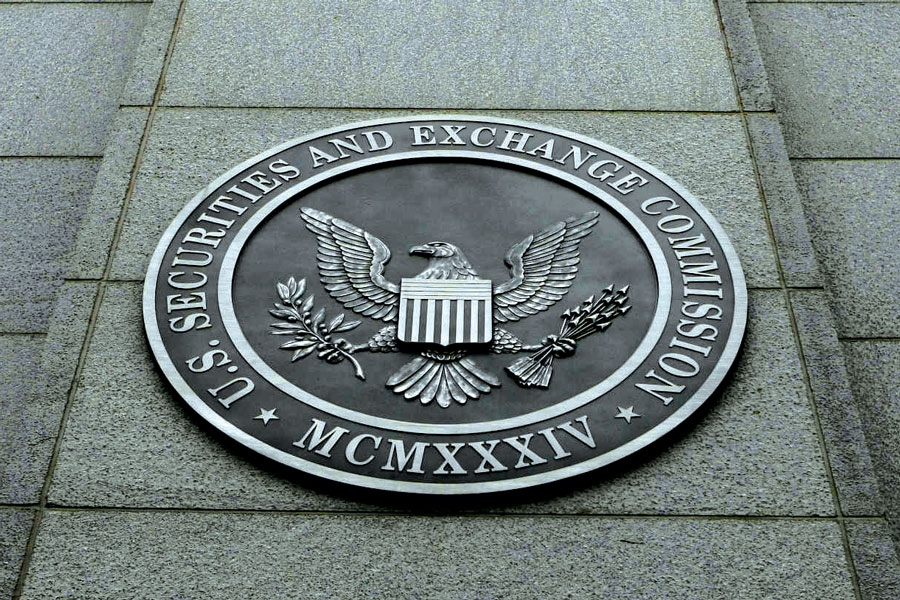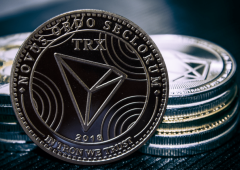SEC Delays Decision on Grayscale’s Ethereum Staking ETF Proposal
15.04.2025 12:00 2 min. read Alexander Stefanov
The U.S. Securities and Exchange Commission (SEC) is taking additional time to evaluate a proposal that would allow Grayscale to integrate Ethereum staking into its spot ETF offerings.
Originally filed by NYSE Arca back in February, the aims to update the rules governing Grayscale’s Ethereum Trust and Mini Trust ETFs to enable staking rewards from their ETH holdings.
The proposal request was published for public comment in early March, initiating a 45-day review period that was set to end on April 17. However, a notice released on April 14 confirms the SEC has opted to extend the review window until June 1, citing the need for a more thorough examination of the potential implications. So far, the proposal has not received any public commentary.
This kind of extension isn’t unusual. Under federal securities law, the SEC can grant itself up to 90 days to consider complex filings. In this case, the agency stated it wants enough time to properly assess the structure of the proposed rule change and its broader impact on the market.
If approved, the amendment would mark a significant shift in how Ethereum ETFs function. While Grayscale’s funds already hold ETH, they don’t currently participate in staking—Ethereum’s proof-of-stake (PoS) system that offers passive rewards in exchange for securing the network. Adding this functionality would allow ETF investors to earn yield, not just benefit from ETH price movements.
The outcome of this decision could carry broader implications. Should the SEC give Grayscale the green light, other asset managers might follow with similar applications, potentially reshaping the Ethereum ETF landscape and signaling a more flexible regulatory approach to staking within traditional investment vehicles.
The delay also arrives shortly after Grayscale filed for a Hedera ETF and earlier attempts to gain approval for Litecoin and XRP products. While the SEC remains cautious on all things crypto, the pending decision could shed light on whether its stance is beginning to evolve—particularly regarding the integration of decentralized finance mechanisms into mainstream financial instruments.
-
1
Corporate Interest in XRP Surges as Firms Eye It for Treasury Reserves
06.06.2025 15:00 1 min. read -
2
Whale Activity Triggers Caution for Select Altcoins Amid Bitcoin Optimism
05.06.2025 20:00 1 min. read -
3
Pi Network Urged to Act as Users Demand Token Transparency
08.06.2025 9:00 2 min. read -
4
PI Token Slides to New Lows as Institutional Confidence Fades
01.06.2025 9:00 2 min. read -
5
XRP Price Prediction: XRP Nears Key Support That Could Push it Back to $2.65
05.06.2025 1:02 3 min. read
Cardano ETF Approval Odds Hit Record High on Polymarket
A growing chorus of traders now believes that a U.S.-listed Cardano ETF is becoming more a matter of “when” than “if.”
Shiba Inu Hangs by a Thread as Chart Signals 50% Breakdown
Shiba Inu has surrendered roughly a quarter of its market value over the past month, hovering this morning near $0.0000113.
SEC Seen as Nearly Certain to Approve Wave of Crypto ETFs, Say Bloomberg Analysts
Confidence is surging among analysts that U.S. regulators are preparing to greenlight a wide array of cryptocurrency ETFs, marking a pivotal change in the SEC’s approach to digital assets.
Ripple’s Stablecoin Edges Toward $500M Milestone After Latest Mint
Ripple has minted another 13 million RLUSD tokens, pushing its dollar-pegged stablecoin closer to the half-billion-dollar mark in circulating supply.
-
1
Corporate Interest in XRP Surges as Firms Eye It for Treasury Reserves
06.06.2025 15:00 1 min. read -
2
Whale Activity Triggers Caution for Select Altcoins Amid Bitcoin Optimism
05.06.2025 20:00 1 min. read -
3
Pi Network Urged to Act as Users Demand Token Transparency
08.06.2025 9:00 2 min. read -
4
PI Token Slides to New Lows as Institutional Confidence Fades
01.06.2025 9:00 2 min. read -
5
XRP Price Prediction: XRP Nears Key Support That Could Push it Back to $2.65
05.06.2025 1:02 3 min. read


